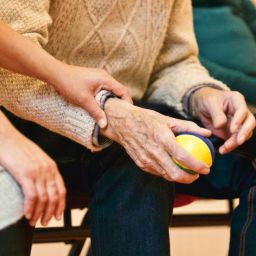 Having a child is one of the most life changing things you will ever do, and with major life changes invariably comes stress.
Having a child is one of the most life changing things you will ever do, and with major life changes invariably comes stress.
Chronic, unmanaged stress levels can significantly impact upon quality of life and research has found that both mothers and fathers face an increased risk of depression after the birth of a child, and remain at some increased risk well into a child’s adolescence. A fifth of fathers and more than a third of mothers experience depression before their child turns 12 years old, with the highest rates in the first year after birth, according to a study from the Medical Research Council (MRC).
The research, which tracked nearly 87,000 families in the United Kingdom between 1993 and 2007, found the highest risk for depression occurred in the first year after a child’s birth.
The National Council for Hypnotherapists(NCH) believes that hypnobirthing can reduce stress and anxiety for you, your partner and your baby, creating a healthy environment for your family.
 Overall, 39 percent of mothers and 21 percent of fathers had experienced an episode of depression during the first 12 years of their child’s life. After the first year of parenting, a mother’s risk for depression dropped by half, while second time dads faced only about a quarter of the depression risk compared with new fathers. Although depression risk for both parents dropped considerably in the second year, they remain steady until the child is aged 12 (the survey did not track families beyond the child’s age of 12).
Overall, 39 percent of mothers and 21 percent of fathers had experienced an episode of depression during the first 12 years of their child’s life. After the first year of parenting, a mother’s risk for depression dropped by half, while second time dads faced only about a quarter of the depression risk compared with new fathers. Although depression risk for both parents dropped considerably in the second year, they remain steady until the child is aged 12 (the survey did not track families beyond the child’s age of 12).
Parents who had an earlier history of depression, who had children at a relatively young age or who had lower incomes were at highest risk for a depressive episode during their parenting years, according to the study. Although the study wasn’t designed to determine the causes of the higher depression rates among parents, researchers speculated that several potential triggers could occur because of the everyday demands of parenting. It seems reasonable to suggest that the stress of new fatherhood may put men at risk of depression.
Postnatal depression is a serious issue and can have far reaching consequences. Babies have been shown to pick up on parental stress, says a Norland trained nanny, “they will cry more if you are overwhelmed. Trying to do too much on your own and not resting enough has become a common trait”. Children also pick up on stress, depression and anxiety in their parents, with research showing that children with anxiety related stomach conditions are more likely to have anxious or depressed mothers.
Hypnobirthing teaches the mother to deeply relax with specific hypnotic pain control techniques leading to reports of significantly faster births with fewer medical interventions and faster recoveries; this type of birth experience is believed by many to reduce the risk of post-natal depression. Partners who are involved with the hypnobirthing training also report a significant reduction in stress and anxiety surr ounding becoming a parent.
ounding becoming a parent.
Hypnotherapy can also assist if you are currently struggling with postnatal depression. During a course of therapy the hypnotherapist will work with their client to help assess and build strategies for dealing with their postnatal depression, including identifying the root causes and establishing post-treatment goals.
With the right support, which can include self-help strategies and therapy, most parents make a full recovery. Search our database of hypnotherapists to find someone local to you.










